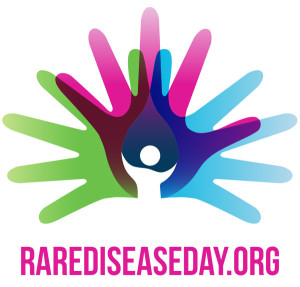DEEP project is glad to support The Rare Disease Day 2018, that will take place on the last day of February 28th, to raise awareness of rare diseases and their impact on patients’ lives amongst the general public and decision-makers. The Rare Disease Day was first launched by EURORDIS and its Council of National Alliances in 2008, but soon this initiative spread all over the world involving 94 countries in 2017.
A disease is defined as rare in Europe when it affects fewer than 1 out of 2000 and the 50% of rare diseases affect children. Patients with rare diseases often face many challenges, from delay in diagnosis to the absence of adequate treatments, which result in heavy social and financial burdens on patients and their families. Nevertheless, enormous progresses have been made in the last years thanks to the international cooperation in the field of clinical and scientific research as well as to the sharing of scientific knowledge about all rare diseases.
Therefore, it is important to continue along this pathway to further support rare disease patients and their families. To this aim, the Rare Disease Day has taken place every year since 2008, to call upon researchers, universities, students, companies, policy makers and clinicians to do more research and to make them aware of the importance of research for the rare diseases community.
DEEP considers the promotion and the coordination of research extremely important for health care system, and particularly for Rare Diseases, since they represent the tools to speed up the achievements in research and benefits for patients.
For this tenth edition of the Rare Disease Day, a special attention will be paid to the crucial role that patients play in research. Patient involvement in research has resulted in more research, which is better targeted to the needs of patients.
When it comes to consider patient involvement in the paediatric field, more challenges have to be faced. To this aim, within the DEEP project, age-tailored information booklets and videos have been developed to inform the participant children on the study objectives and procedures with a language and a wording appropriate to their age, psychological and intellectual maturity.
Therefore, the DEEP Project welcomes this initiative and joins to the Rare Disease Day community becoming a friend of Rare Disease Day and showing its support on its official website and social networks.
For further information on the Rare Disease Day visit the following website: https://www.rarediseaseday.org/


